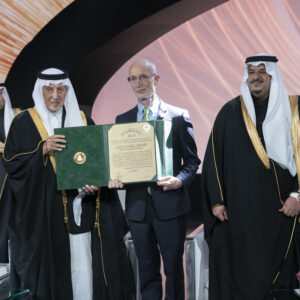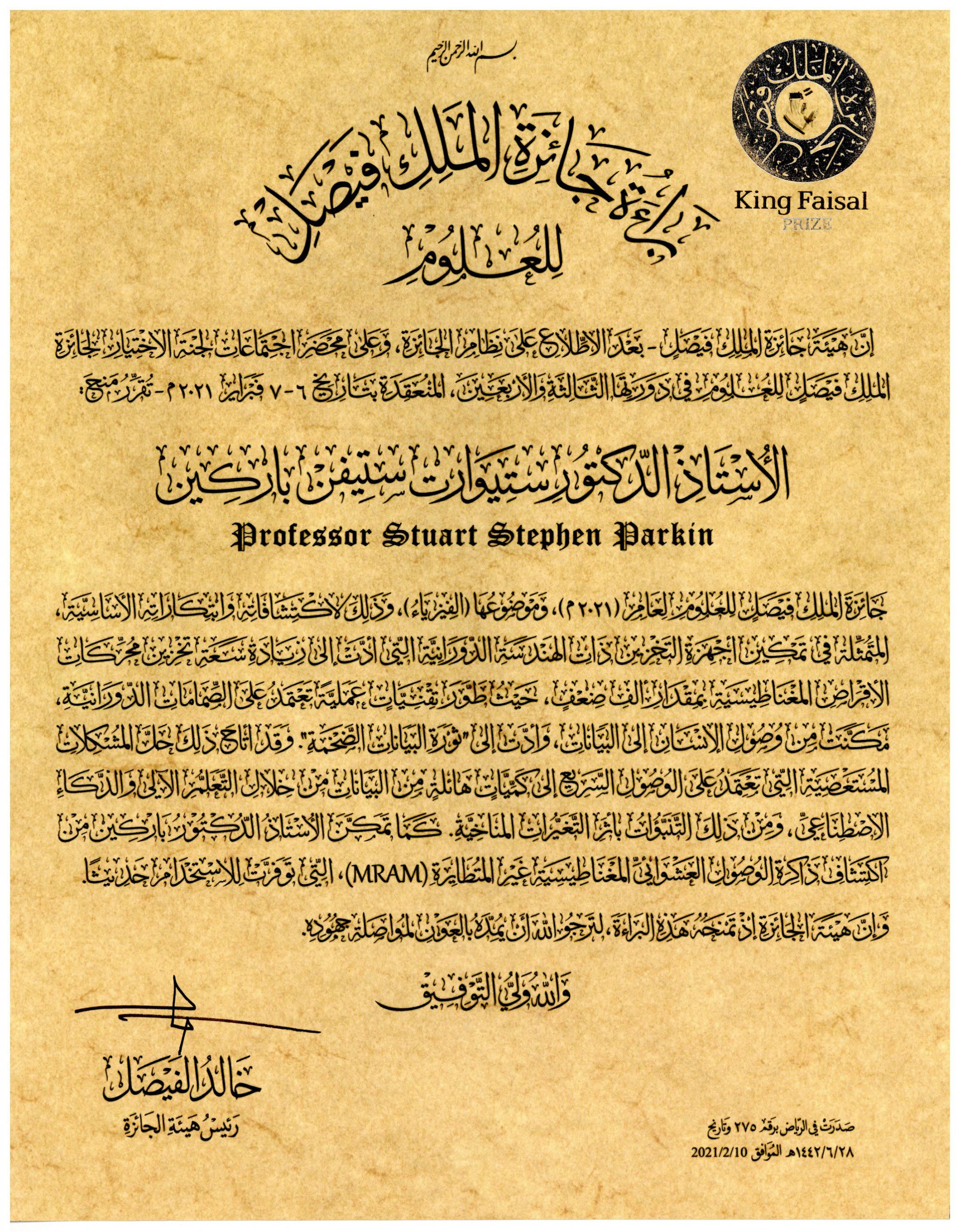

Professor Stuart Stephen Papworth Parkin
King Faisal Prize in Science 2021 Laureate
Topic: "Physics"
Crazy ideas are the way forward to the technologies that will change our world

Stuart Parkin received his B.Sc. in Physics and Theoretical Physics in 1977, and an M.A. and a Ph.D. in experimental condensed matter physics in 1980, from the University of Cambridge, U.K. He was elected to a Research Fellowship, Trinity College, Cambridge in 1979, and carried out postdoctoral work in the Laboratoire de Physique des Solides, Université Paris-Sud. He then moved to IBM Research, San Jose, California as an IBM World Trade Fellow in 1982. In 1999, Parkin was appointed an IBM Fellow, IBM’s highest technical honor. Parkin was the Director of the IBM-Stanford Spintronic Science and Applications Center from 2004 to 2014, when he took up a position as a Director at the Max Planck Institute of Microstructure Physics, Halle, Germany. He was also appointed as an Alexander von Humboldt Professor at Martin Luther University Halle-Wittenberg, Halle. Parkin is an elected Fellow/ Member of several major scientific academies and has received 4 honorary doctorates. He has published more than 580 papers and has an h-index of 113. He is the recipient of numerous awards and prizes.
Parkin’s work focuses on the exploration and discovery of novel spintronic materials and devices for future memory and computing systems. He has led the field of spintronics for more than 30 years. Parkin invented and developed materials and devices for three major spintronic memory and storage technologies. All of these rely on the creation and manipulation of spin currents in atomically engineered thin film heterostructures. These include a spin-valve sensor that can detect tiny magnetic fields at room temperature, a high performance non-volatile magnetic random access memory that relies on magnetic spin-dependent tunneling junctions, and magnetic racetrack memory, a novel three-dimensional shift memory-storage device that relies on the current controlled manipulation of series of magnetic domain walls.
This biography was written in the year the prize was awarded.





